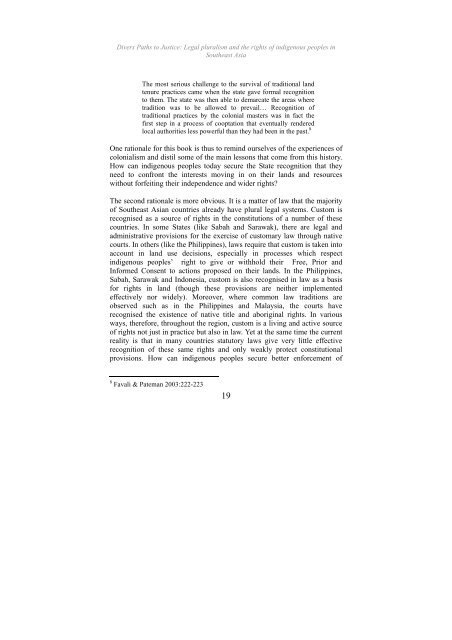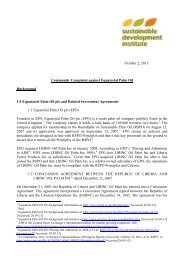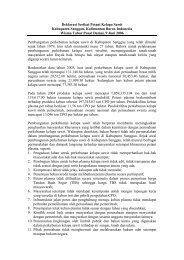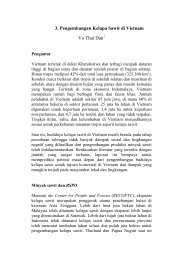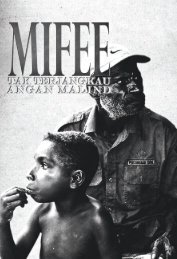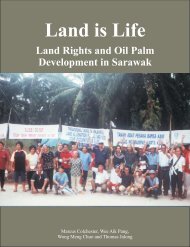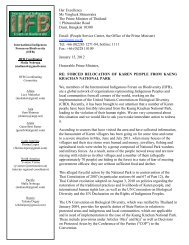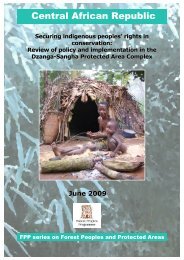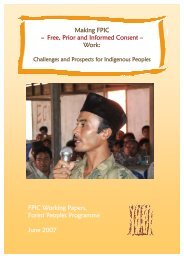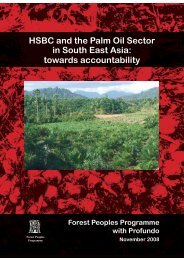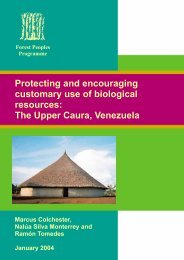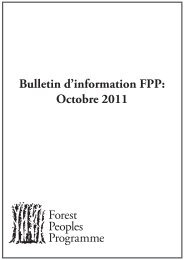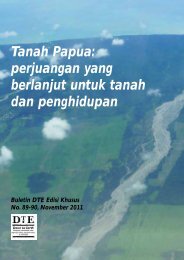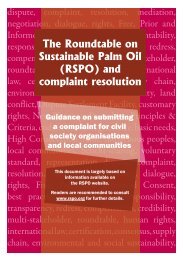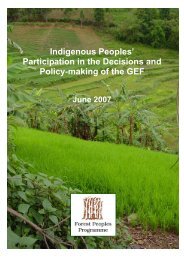Divers Paths to Justice - English - Forest Peoples Programme
Divers Paths to Justice - English - Forest Peoples Programme
Divers Paths to Justice - English - Forest Peoples Programme
You also want an ePaper? Increase the reach of your titles
YUMPU automatically turns print PDFs into web optimized ePapers that Google loves.
<strong>Divers</strong> <strong>Paths</strong> <strong>to</strong> <strong>Justice</strong>: Legal pluralism and the rights of indigenous peoples inSoutheast AsiaThe most serious challenge <strong>to</strong> the survival of traditional landtenure practices came when the state gave formal recognition<strong>to</strong> them. The state was then able <strong>to</strong> demarcate the areas wheretradition was <strong>to</strong> be allowed <strong>to</strong> prevail… Recognition oftraditional practices by the colonial masters was in fact thefirst step in a process of cooptation that eventually renderedlocal authorities less powerful than they had been in the past. 8One rationale for this book is thus <strong>to</strong> remind ourselves of the experiences ofcolonialism and distil some of the main lessons that come from this his<strong>to</strong>ry.How can indigenous peoples <strong>to</strong>day secure the State recognition that theyneed <strong>to</strong> confront the interests moving in on their lands and resourceswithout forfeiting their independence and wider rights?The second rationale is more obvious. It is a matter of law that the majorityof Southeast Asian countries already have plural legal systems. Cus<strong>to</strong>m isrecognised as a source of rights in the constitutions of a number of thesecountries. In some States (like Sabah and Sarawak), there are legal andadministrative provisions for the exercise of cus<strong>to</strong>mary law through nativecourts. In others (like the Philippines), laws require that cus<strong>to</strong>m is taken in<strong>to</strong>account in land use decisions, especially in processes which respectindigenous peoples’ right <strong>to</strong> give or withhold their Free, Prior andInformed Consent <strong>to</strong> actions proposed on their lands. In the Philippines,Sabah, Sarawak and Indonesia, cus<strong>to</strong>m is also recognised in law as a basisfor rights in land (though these provisions are neither implementedeffectively nor widely). Moreover, where common law traditions areobserved such as in the Philippines and Malaysia, the courts haverecognised the existence of native title and aboriginal rights. In variousways, therefore, throughout the region, cus<strong>to</strong>m is a living and active sourceof rights not just in practice but also in law. Yet at the same time the currentreality is that in many countries statu<strong>to</strong>ry laws give very little effectiverecognition of these same rights and only weakly protect constitutionalprovisions. How can indigenous peoples secure better enforcement of8 Favali & Pateman 2003:222-22319


